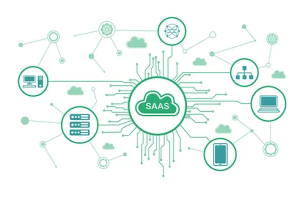The Digital Marketing Project Lifecycle offers a structured approach that transforms client objectives into tangible results. By meticulously guiding each stage—from initial client meetings and strategic proposals to execution and results analysis—this workflow ensures methodical project progression with minimal guesswork. Transparent communication is maintained throughout, enabling all stakeholders to collaborate effectively and adapt to evolving needs. Most importantly, every phase remains tightly focused on measurable business outcomes, guaranteeing that marketing initiatives not only align with client goals but also deliver demonstrable ROI and long-term value. This disciplined methodology is the foundation for consistently successful digital marketing engagements.

1. Client Meeting
The project begins with an in-depth client meeting to understand business objectives, current pain points, and desired outcomes. This phase is essential for aligning expectations and building rapport, establishing a foundation for partnership and project clarity.
2. Pitching
Following discovery, the marketing team delivers a tailored pitch that highlights key value propositions. This includes sharing relevant past successes, outlining proposed solutions, and emphasizing how these approaches align with the client’s goals. Effective pitching differentiates your team from competitors by demonstrating expertise and strategic vision.
3. Strategic Proposal
A comprehensive strategic proposal is crafted, detailing the recommended digital marketing plan. Key elements include:
-
Executive summary of project goals and approach
-
Channel strategy breakdown (SEO, SEM, social media, content, email, etc.)
-
Timeline and phased rollout plan
-
Key performance indicators (KPIs)
-
Risk mitigation plans
-
Collaboration expectations and process flow
4. Budgeting
The budgeting stage quantifies each deliverable, clarifying costs for creative services, media spend, technical setups, and ongoing management. Present forecasts in clear, transparent terms to facilitate client decision-making. This step often includes interactive pricing tables and options for scalability.
5. Discussion & Negotiation
This collaborative phase involves stakeholder discussions, addressing open questions, refining the proposal, and negotiating contract terms. Open communication and flexibility help resolve concerns, align priorities, and optimize project scope within budget constraints.
6. Final Kickoff
Upon agreement, a formal kickoff meeting is scheduled to confirm timelines, deliverables, project roles, and communication routines. Both sides validate initial assumptions and define success criteria, ensuring organizational readiness for launch and execution.
7. Execution
During execution, the marketing team implements campaign tactics, monitors performance, and manages workflows according to an established roadmap. This includes rolling out content, optimizing ad spend, tracking analytics, and adjusting as needed to meet dynamic market conditions.
8. Results & Reporting
The final stage involves thorough results analysis against KPIs. The team provides clear and insightful reports to the client, summarizing campaign performance, ROI, insights, and next-step recommendations for continuous improvement and future planning.
| Phase | Core Activities | Key Outputs |
|---|---|---|
| Client Meeting | Discovery, needs assessment | Alignment, shared vision |
| Pitching | Value proposition, proof of concept, competitive edge | Buy-in, trust |
| Strategic Proposal | Detailed plan, KPIs, process mapping | Strategic roadmap |
| Budgeting | Itemized costs, scalability options | Transparent pricing |
| Discussion | Negotiation, Q&A, scope refinement | Finalized agreement |
| Final Kickoff | Roles, timelines, onboarding | Launch readiness |
| Execution | Content, ads, optimization, analytics | Campaign delivery |
| Results | Performance analysis, ROI, reporting, future planning | Actionable insights |
This workflow ensures methodical project progression, transparent communication, and a strong focus on measurable business outcomes throughout the digital marketing engagement




